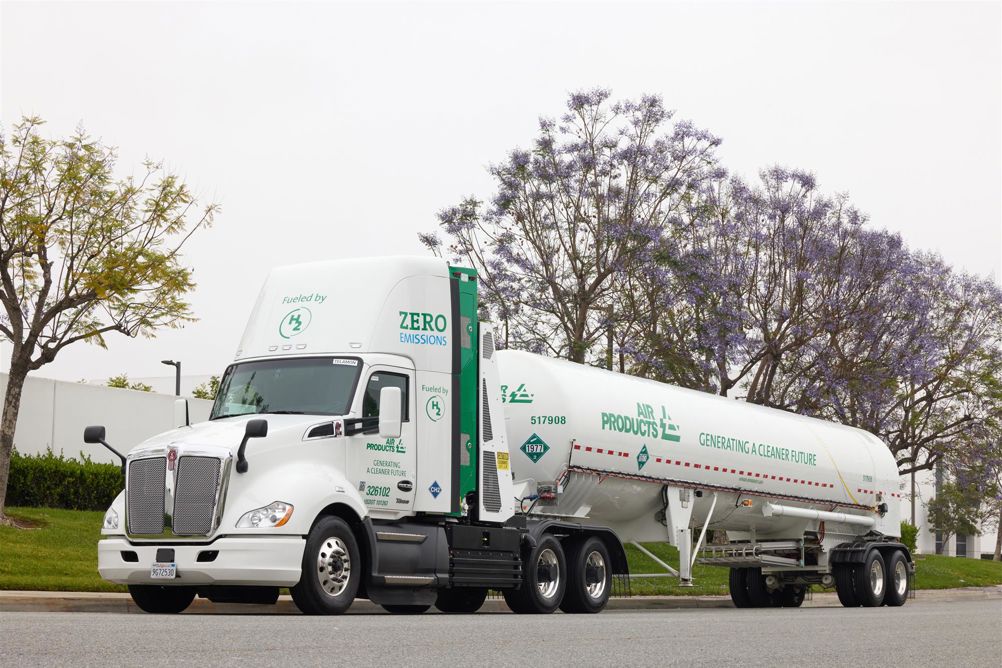What attracted you to industrial gas engineering in the first place?
It started with a love of maths and science as it does for many engineers. It may be cliched to say it, but I enjoy solving problems. I also wanted to choose a career that would help me have real impact in the world, which led me to a degree in chemical engineering and then to my job with Air Products.
But I find there’s so much more to engineering than just technical expertise. No two days are the same and I get to work with a great team. I often say that I started the role because I wanted to put what I learnt into action, and stayed because of how my career has evolved and because of the people I get to work with.
How did you land in your current role?
Via the Air Products’ graduate scheme – and I’d recommend it to anyone! I’d planned to take a gap year but before setting off travelling, I went along to an assessment centre and knew it was too good of an opportunity to turn down. During my five years on the scheme, I had a go at a wide variety of jobs – including asset management, energy from waste projects construction and commissioning, process systems and production process engineering. I then rolled off the scheme into the role of deputy plant manager for Air Products’ Carrington plant.
Having been promoted to plant manager at the Isle of Grain, I started the role straight after maternity leave. That really was an amazing feeling, and underlined the range and diversity of opportunity here for everyone. I know some women feel concerned about the impact of maternity leave on their career progression and can be nervous about returning to work, but I’d say be confident in the value you deliver to the business, be clear about your needs and keep communications with your managers open. A good manager will work with you to find a good fit for both you and the business.
Can you tell us more about your day-to-day job?
The Isle of Grain plant that I manage supports National Grid’s natural gas supply to the UK
Energy companies supply the liquefied natural gas (LNG) and the nitrogen supplied by us adjusts the LNG quality to the appropriate UK natural gas specification. Our facility provides nitrogen which blends up to 20% of Britain’s natural gas demand. So keeping the plant running with maximum efficiency is a huge responsibility because of the customer and national infrastructure that we serve.
My role involves everything from making sure that as a team we’re keeping to our company’s high safety and quality standards, overseeing all aspects of the operations, liaising with clients and troubleshooting any equipment or personnel issues.
What’s the best part of what you do?
A lot of what I love about engineering comes down to the impact of my work. The gases we make are both life critical and life enhancing. Our gases, for example, helped to keep hospitals running in the pandemic with ramped up oxygen supply. They are also used in the food industry to keep food fresh for longer, and they support life-saving research through cryo-preservation of bio-materials.
The diversity of the sectors that the business touches – and of what I do – helps keep the work fresh and interesting.

Importantly, I’ve always felt very supported and recognised throughout my career, both through my management team, but also through having senior colleagues as informal mentors. I think that’s a hallmark of any business that is serious about retaining talent.
Can you tell us about some of the challenges you’ve faced?
Our work – and the gases we supply – are critical to keeping the UK manufacturing industry and a real breadth of sectors up and running – from the healthcare and biomedical sector, to food and beverage, metals fabrication, and leisure sectors. That means our people need to be here, and our plants need to operate daily. One of the biggest challenges I’ve therefore faced as a deputy plant manager was handling our practices around the COVID-19 pandemic to ensure a safe working environment for our people.
I learnt that when it comes to safety, the initial direction can come from the management team, but equally, an effective safety management system requires everyone’s buy in and collaboration – be it drivers, production managers, technicians or contractors. Once everyone agreed on the principles of what we were trying to achieve during that period, we moved fast, improvised and implemented new safety systems, with real improvement delivered along the way.
What’s the future for the sector?
The fascinating thing about our industry is that we have always supported the decarbonisation of our customers’ operations and this will play an even more important role in years to come as we work towards achieving the UK’s climate goals.
Our industrial gases help a dozen industries improve yields, reduce energy consumption and lower emissions. The oxygen and hydrogen we supply, for example, enable better combustion of fuels, reducing emissions in applications like cement, metals and glass manufacturing. Meanwhile our nitrogen is used in food freezing to improve product quality and reduce food waste – a major global issue.
That focus on both generating a cleaner future ourselves and supporting our customers on their decarbonisation journey will remain front and centre of the sector’s future.
I’d also expect the digitalisation of plants and equipment to keep growing and evolving to drive efficiencies and keep the sector competitive. We will never replace the need for talent however, and for anyone wanting to make a real difference to the world around them, the future of this sector is incredibly bright.











Microplastics evading capture in wastewater treatment
Can anyone provide a link to a credible peer-reviewed study demonstrating toxicity from microplastics? This report uses words like ´potential´ and...